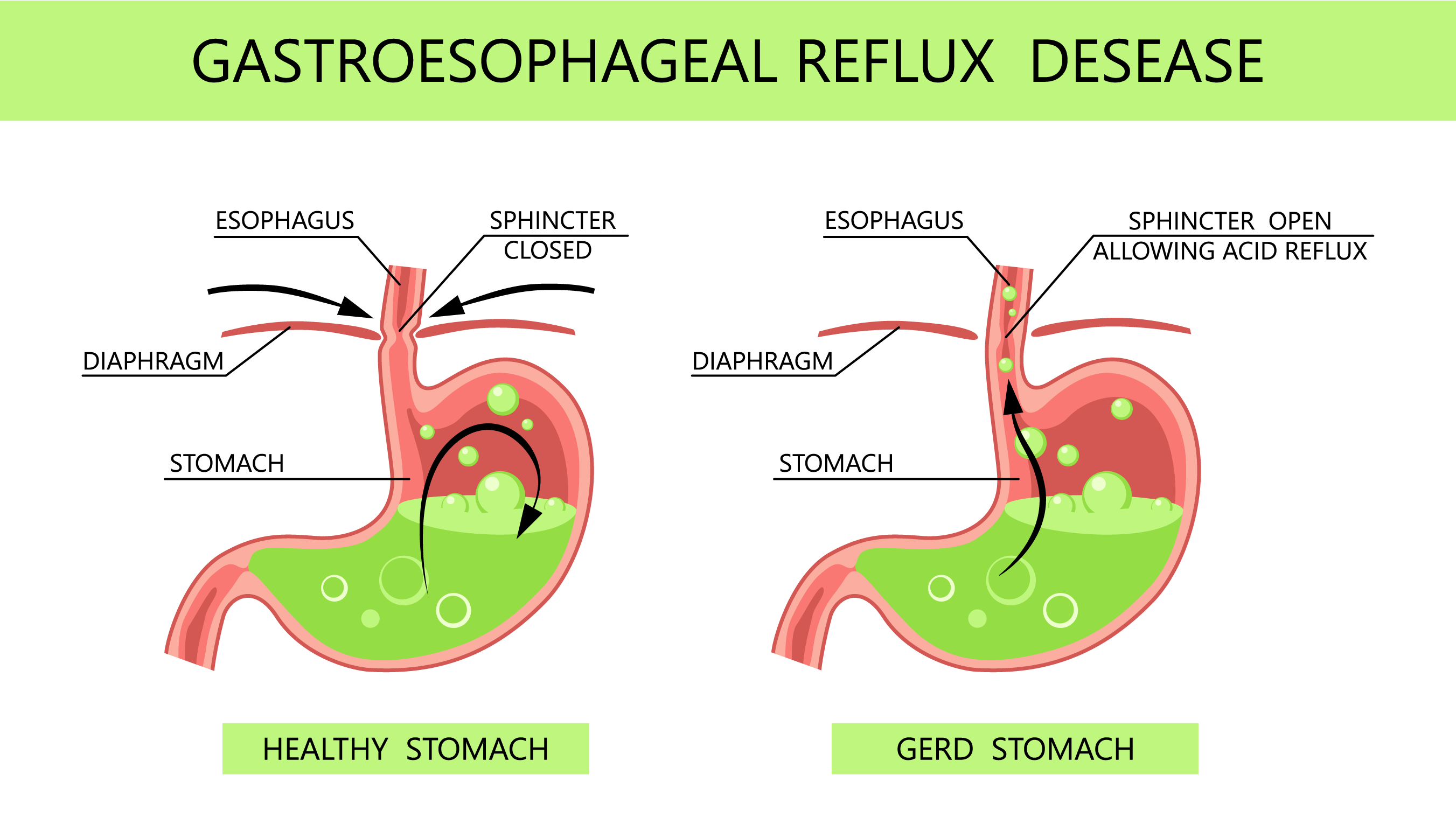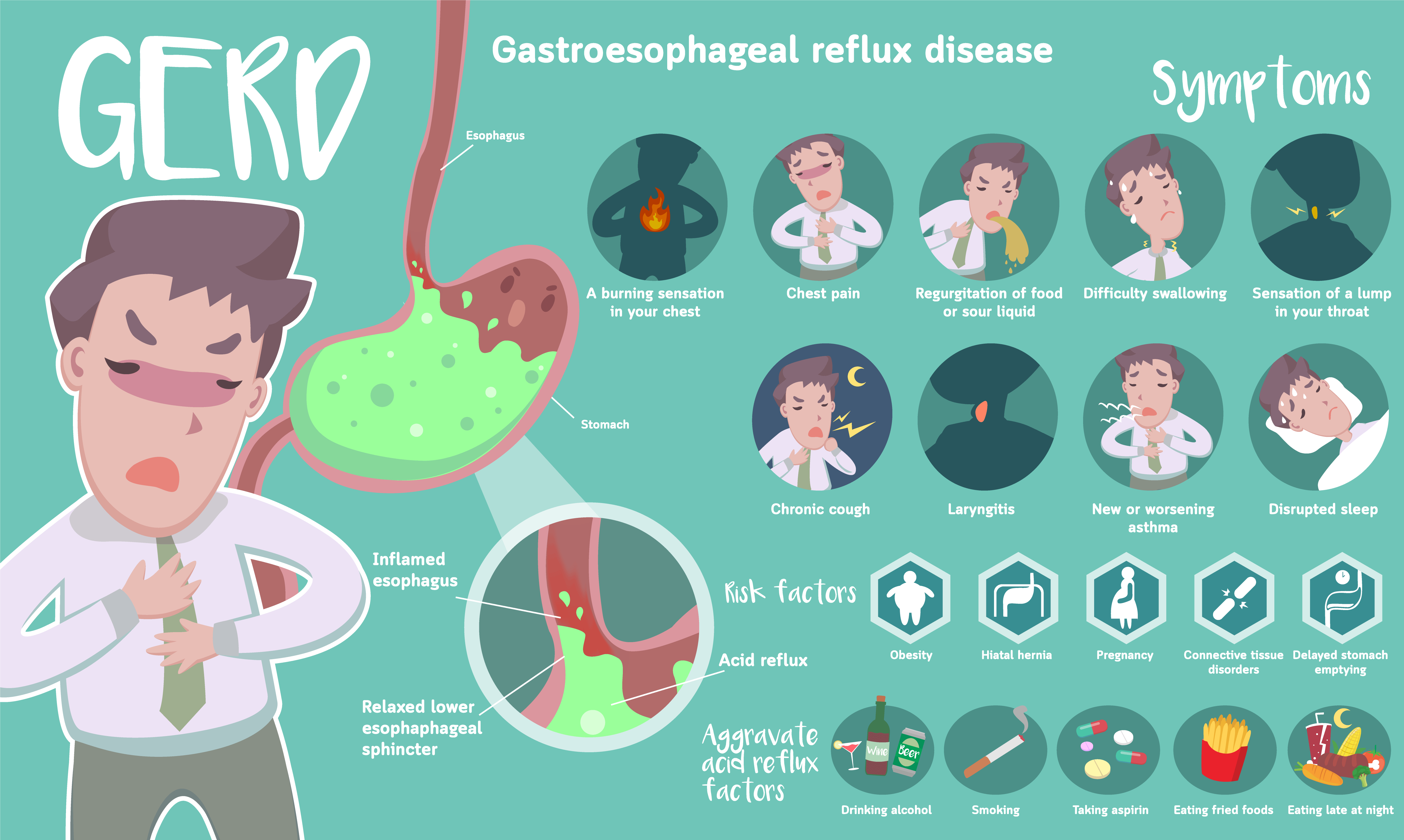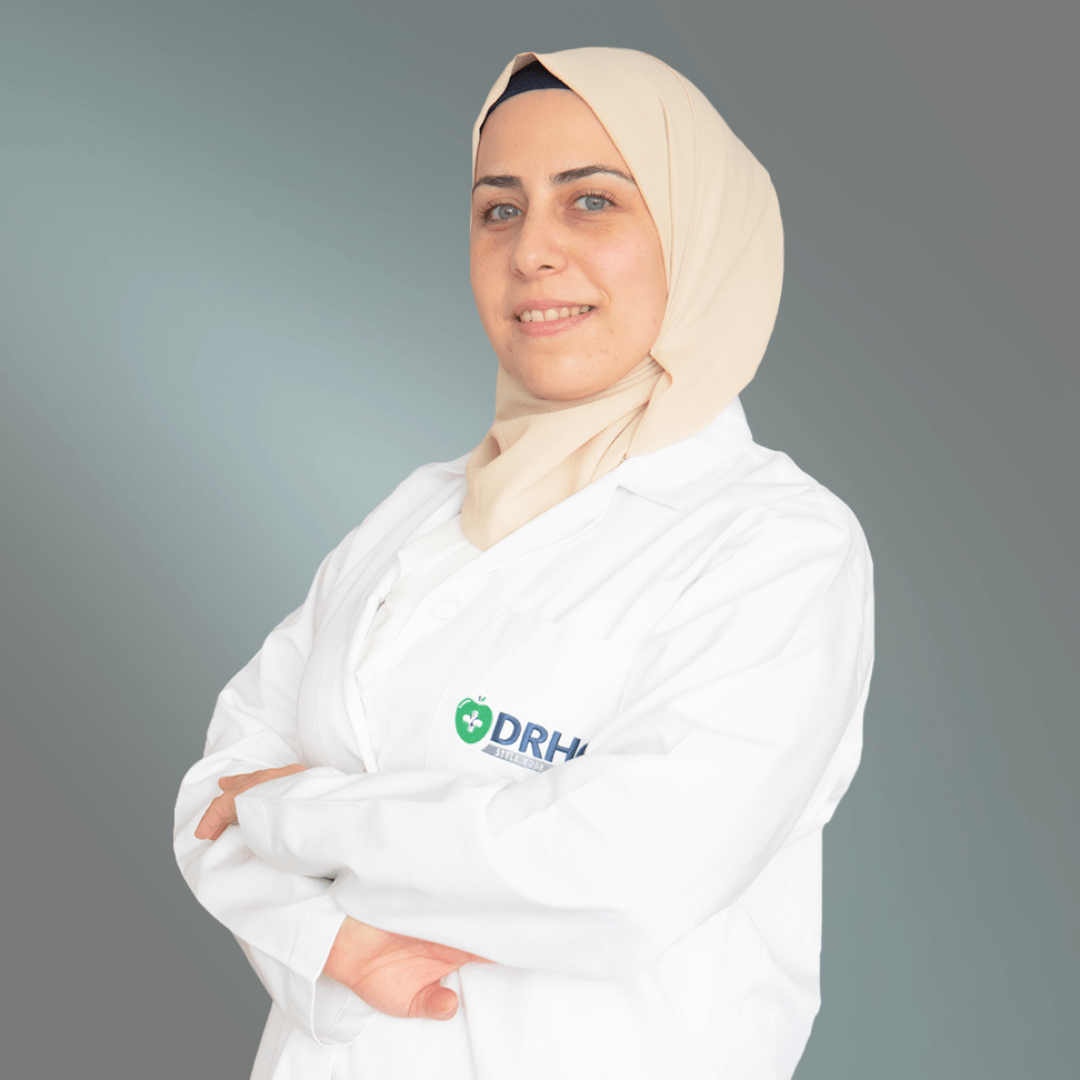GERD (Gastroesophageal Reflux Disease) at DRHC Dubai
Gastro-esophageal reflux disease (GERD), commonly known as acid reflux, occurs when stomach contents, including stomach acid, flow back up into the esophagus. This backwash, or reflux, can irritate the lining of the esophagus, causing symptoms and potential complications.
The lower esophageal sphincter (LES) is a ring of muscle at the bottom of the esophagus that acts as a valve between the esophagus and the stomach. Normally, the LES opens to allow food into the stomach and closes to prevent stomach contents from flowing back up. However, if the LES is weak or relaxes inappropriately, it can allow stomach acid to escape into the esophagus.
GERD can be related to excessive acid secretion and gastritis, but it is usually a result of poor control of the one-way junction valve of the esophagus and the stomach that allows the stomach acid to come back into the esophagus and irritate the tissue that does not tolerate the acidity. This is called Gastro-esophagus Reflux Disease (GERD).
There are also atypical symptoms of GERD, more than heartburn, including chest pain, recurrent pneumonia, bronchitis, sleep apnea, and voice changes. These atypical symptoms can cause delayed diagnoses and lead to complications.
It is almost a mechanical issue that controls the severity and frequency of the symptoms; for example, bending forward increases the pressure in the abdomen and increases the reflux. Also, lying flat will cancel the gravity effects and allow more reflux.

Feeling:
Symptoms of GERD include a burning sensation in the chest (heartburn), regurgitation of food or sour liquid, and difficulty swallowing. Chronic reflux can lead to more serious conditions like esophagitis, an inflammation of the esophageal lining, and Barrett's esophagus, a condition where the tissue lining the esophagus changes and can increase the risk of esophageal cancer.
Causes:
- Increased pressure inside the abdomen cavity like in obesity, pregnancy, and huge meals.
- Causes of a hiatus hernia that disturb the function of the junction valve.
- Alcohol, smoking, and some medications can also affect the function of the muscular junction of the esophagus and stomach.
- Stress can be an augmenting factor in the presence of the above, but we do not believe stress is an isolated cause.

Several factors contribute to GERD. Lifestyle and dietary habits, such as eating large meals, lying down immediately after eating, obesity, smoking, and consuming certain foods and drinks (like fatty foods, coffee, alcohol, and chocolate), can increase the risk of reflux. Additionally, some medical conditions, including pregnancy and hiatal hernia, can exacerbate GERD symptoms.
Risk Factors:
Treatment:
Medications are the first step in GERD treatment and an important element to limit the damage of abnormal exposure of the esophagus to refluxed gastric contents, however, treatment options are a wide spectrum starting from simple measures including diet control and lifestyle modification, and can extend into medication treatment, and may require minimally invasive approach like treatment with Radiofrequency (Stretta) or by laparoscopic surgery (Nissen’s plication). Treatment is usually tailored according to the level and frequency of symptoms, the stage of the disease, and more importantly the progression of symptoms which indicates poor control and the need for a further step up in the treatment of GERD.
Understanding GERD is essential for managing symptoms and preventing complications. With proper lifestyle changes and medical treatment, individuals with GERD can lead comfortable and healthy lives. For a comprehensive diagnosis and personalized treatment plan, our team of expert gastroenterologists at DRHC are here to offer you a personalized treatment plan to help you get rid of GERD.
Managing GERD often involves lifestyle modifications, such as losing weight, eating smaller meals, avoiding trigger foods, and not lying down after eating. Over-the-counter medications, like antacids, H2 blockers, and proton pump inhibitors, can help reduce stomach acid and relieve symptoms. In severe cases, surgical interventions might be necessary.
Stretta is the only widely studied minimally invasive treatment option for GERD – and has been proven safe and effective in more than 33 clinical studies and 20,000 procedures. Patients experience significant and lasting symptom relief from 4 to 10 years. We offer one of the best gastroenterologists in Dubai for Stretta procedures at Dr. Rami Hamed Center.
.png?width=281&height=59&name=bookanappointment%20(1).png)
If you are due for a GERD (Gastroesophageal Reflux Disease) or experiencing gastrointestinal symptoms, don't delay. Contact DRHC Dubai to schedule your colonoscopy appointment. Our team of experts is here to provide you with compassionate care and personalized treatment to keep your digestive health in check. To book Your Appointment just call us at +97142798200 for consulting with Gastroenterology Clinic at DRHC Dubai.



%20(1).png)


.png?width=281&height=59&name=bookanappointment%20(1).png)




